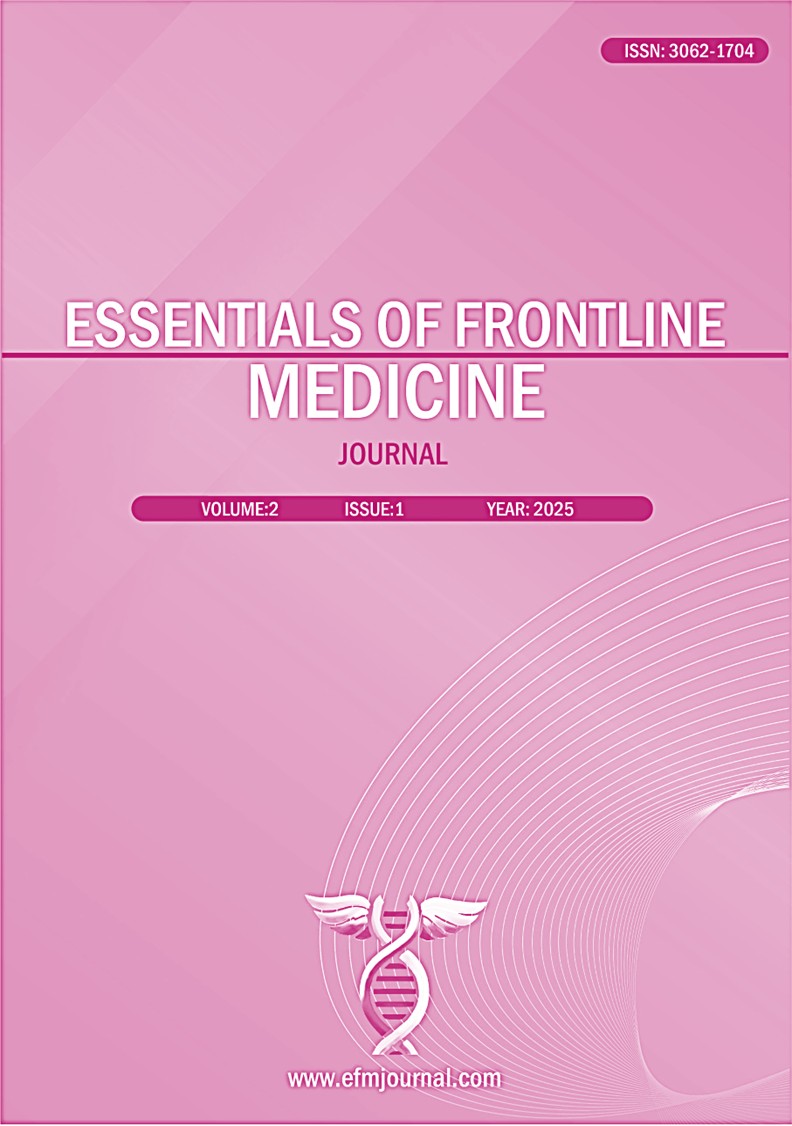Evaluating Research Rigor in National Ophthalmology Abstracts: Insights from a STROBE-Based Assessment
A Cross-Sectional Analysis of STROBE Compliance in a National Congress
DOI:
https://doi.org/10.5281/zenodo.17013339Keywords:
STROBE, ophthalmology, congress abstracts, methodological quality, reporting standardsAbstract
Objective: Congress abstracts reflect current research practices but often lack methodological transparency. In ophthalmology, the extent to which abstracts comply with standardized reporting frameworks remains unclear. To evaluate the study designs and reporting quality of oral presentation abstracts presented at the 57th National Congress of the Turkish Ophthalmology Society using an adapted STROBE checklist.
Methods: This descriptive cross-sectional study included 280 oral abstracts published in the official abstract book of the 2024 congress. Abstracts were classified by study design as observational, randomized controlled, or experimental. Reporting quality was assessed using an 11-item STROBE-based checklist. Each item was scored as 1 (present) or 0 (absent), yielding a total score out of 11. Two independent reviewers scored the abstracts. Differences between reviewers were analyzed using Student’s t-test.
Results: Of the 280 abstracts, 93.6% (n=262) were observational studies, 4.6% (n=13) were experimental, and 1.8% (n=5) were randomized controlled trials. The overall mean STROBE score was 7.21 ± 0.96, with no significant difference between reviewers (p=0.430). The most frequently reported items were author contact information (S2), study objectives (S4), defined outcomes (S7), and participant numbers (S9). The least reported items were study design stated in the title (S1) and statistical methods including control for confounding (S8), indicating insufficient attention to methodological detail.
Conclusion: While the abstracts demonstrated moderate adherence to reporting standards, key elements related to study design and statistical transparency were frequently underreported. Incorporating checklists like STROBE into abstract submission processes and improving researcher training in study methodology may enhance the scientific quality of future ophthalmology congress presentations.
References
1. Zoccali C, Mallamaci F. The crisis of medical congresses and the future ahead. Journal of Nephrology. 2024;37(1):207-14.
2. Crawford DC, Hoye ML, Silberberg SD. From methods to monographs: fostering a culture of research quality. Eneuro. 2023;10(8).
3. Acar S. The publication rate of presented abstracts at a congress and determining its publication factor. Journal of Surgery and Medicine. 2021;5(9):969-73.
4. Lee YWJ, Matadar I, Harrison JE. Conference abstracts—what gets published, when, and from where? Journal of the World Federation of Orthodontists. 2021;10(3):119-26.
5. Sarı E, Nteli Chatzioglou G, Aydın ÇY, Sarı F, Tokat T, Gürses İA. Publication rates of congress abstracts is associated with abstract quality: Evaluation of Turkish National Medical Education Congresses and Symposia between 2010 and 2014 using MERSQI. BMC Medical Education. 2023;23(1):394.
6. Liu M, Wang W, Wang M, He Q, Li L, Li G, et al. Reporting of abstracts in studies that used routinely collected data for exploring drug treatment effects: a cross-sectional survey. BMC Medical Research Methodology. 2022;22(1):6.
7. Conn VS. Crafting effective abstracts. SAGE Publications Sage CA: Los Angeles, CA; 2022. p. 635-.
8. Gürsoy E, Yağız M. Evaluation of Quality of Paper Reporting Online and Face-to-Face Family Medicine Congresses: A Cross-Sectional Study. Turkish Journal of Family Medicine and Primary Care. 2023;17(3):451-8.
9. Von Elm E, Altman DG, Egger M, Pocock SJ, Gøtzsche PC, Vandenbroucke JP, et al. The Strengthening the Reporting of Observational Studies in Epidemiology (STROBE) Statement: guidelines for reporting observational studies. International journal of surgery. 2014;12(12):1495-9.
10. Cuschieri S. The STROBE guidelines. Saudi journal of anaesthesia. 2019;13(Suppl 1):S31-S4.
11. Smith GD, Ho K, Penny KI. The importance of STROBE checklist adherence in reporting of observational studies: Not just a tick box exercise. Journal of Advanced Nursing. 2023;79(12):4431-3.
12. Toews I, Anglemyer A, Nyirenda JLZ, Alsaid D, Balduzzi S, Grummich K, et al. Healthcare outcomes assessed with observational study designs compared with those assessed in randomized trials: a meta‐epidemiological study. Cochrane database of systematic reviews. 2024(1).
13. Süt N. Study designs in medicine. Balkan medical journal. 2014;31(4):273-7.
14. Anglin SM, Drummond Otten C, Broomell SB. Hypothesis testing preferences in research decision making. Collabra: Psychology. 2023;9(1):73029.
15. Lloyd BP, Torelli JN, Pollack MS. Practitioner perspectives on hypothesis testing strategies in the context of functional behavior assessment. Journal of Behavioral Education. 2021;30(3):417-43.
16. Wacharamanotham C, Yang F, Pu X, Sarma A, Padilla L, editors. Transparent practices for quantitative empirical research2022.
17. Hardwicke TE, Thibault RT, Kosie JE, Wallach JD, Kidwell MC, Ioannidis JPA. Estimating the prevalence of transparency and reproducibility-related research practices in psychology (2014–2017). Perspectives on Psychological Science. 2022;17(1):239-51.
18. Nascimento DP, Ostelo RWJG, van Tulder MW, Gonzalez GZ, Araujo AC, Vanin AA, et al. Do not make clinical decisions based on abstracts of healthcare research: A systematic review. Journal of clinical epidemiology. 2021;135:136-57.
19. Brand J, Hardy R, Monroe E. Research pearls: Checklists and flowcharts to improve research quality. Arthroscopy: The Journal of Arthroscopic & Related Surgery. 2020;36(7):2030-8.

Downloads
Published
How to Cite
Issue
Section
License
Copyright (c) 2025 Nurcan GÜRSOY, Şenay TOSUN

This work is licensed under a Creative Commons Attribution 4.0 International License.


